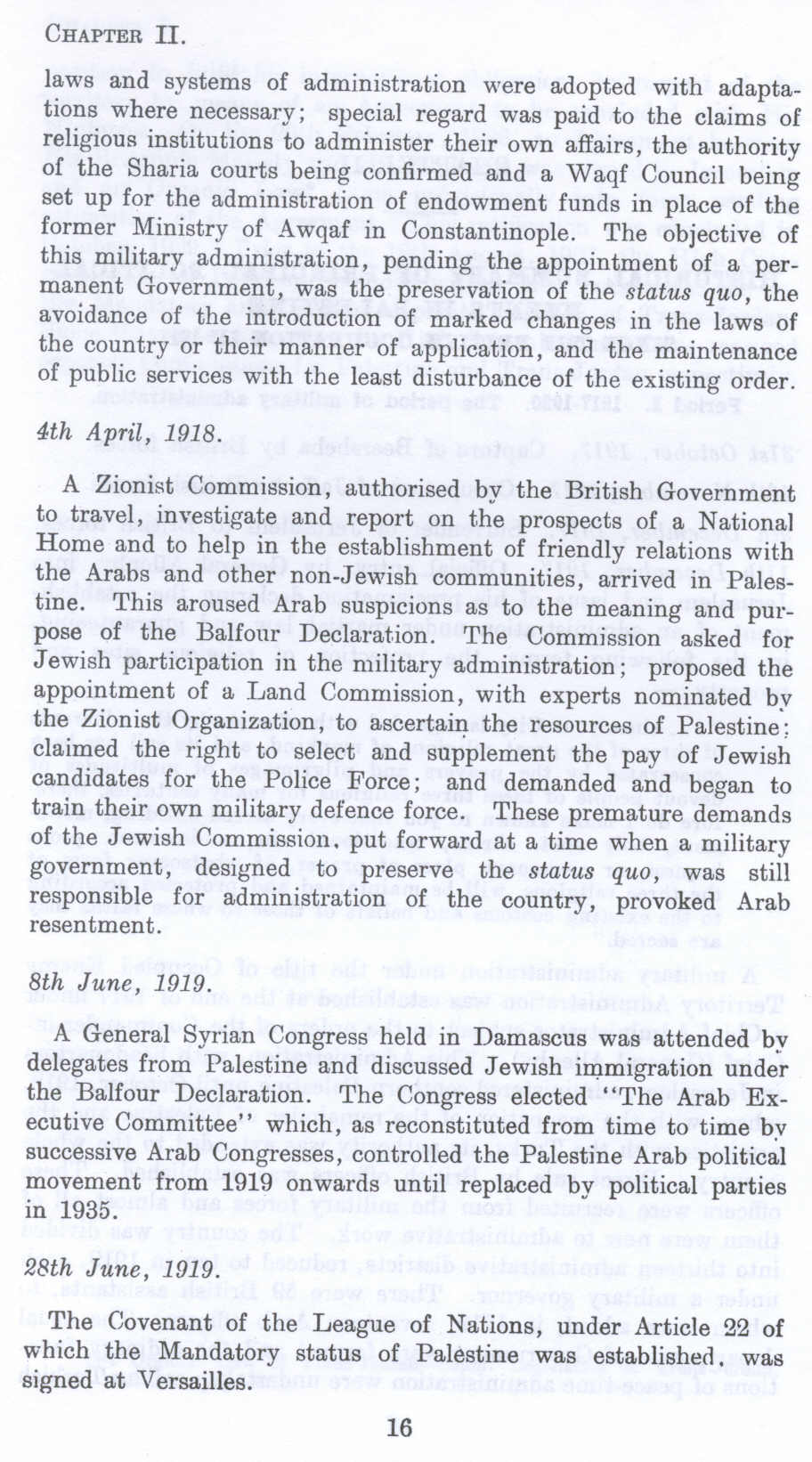| Prev | Next |  |
| Prev | Next |
| PalestineRemembered | About Us | Oral History | العربية | |
| Pictures | Zionist FAQs | Haavara | Maps | |
| Search |
| Camps |
| Districts |
| Acre |
| Baysan |
| Beersheba |
| Bethlehem |
| Gaza |
| Haifa |
| Hebron |
| Jaffa |
| Jericho |
| Jerusalem |
| Jinin |
| Nablus |
| Nazareth |
| Ramallah |
| al-Ramla |
| Safad |
| Tiberias |
| Tulkarm |
| Donate |
| Contact |
| Profile |
| Videos |
British Mandate: A Survey of Palestine: Historical Summary, 1919. Volume I, Chapter II - Page 16 |
Disclaimer
The above documents, article, interviews, movies, podcasts, or stories reflects solely the research and opinions of its authors. PalestineRemembered.com makes its best effort to validate its contents.


Post Your Comment
*It should be NOTED that your email address won't be shared, and all communications between members will be routed via the website's mail server.
laws and systems of administration were adopted with adaptations where necessary; special regard was paid to the claims of religious institutions to administer their own affairs, the authority of the Sharia courts being confirmed and a Waqf Council being set up for the administration of endowment funds in place of the former Ministry of Awqaf in Constantinople. The objective of this military administration, pending the appointment of a permanent Government, was the preservation of the status quo, the avoidance of the introduction of marked changes in the laws of the country or their manner of application, and the maintenance of public services with the least disturbance of the existing order.
4th April, 1918.
A Zionist Commission, authorized bv the British Government to travel, investigate and report on the prospects of a National Home and to help in the establishment of friendly relations with the Arabs and other non-Jewish communities, arrived in Palestine. This aroused Arab suspicions as to the meaning and purpose of the Balfour Declaration. The Commission asked for Jewish participation in the military administration; proposed the appointment of a Land Commission, with experts nominated by the Zionist Organization, to ascertain the resources of Palestine; claimed the right to select and supplement the pay of Jewish candidates for the Police Force; and demanded and began to train their own military defence force. These premature demands of the Jewish Commission. put forward at a time when a military government, designed to preserve the status quo, was still responsible for administration of the country, provoked Arab resentment.
8th June, 1919.
A General Syrian Congress held in Damascus was attended by delegates from Palestine and discussed Jewish immigration under the Balfour Declaration. The Congress elected "The Arab Executive Committee" which, as reconstituted from time to time be successive Arab Congresses, controlled the Palestine Arab political movement from 1919 onwards until replaced by political parties in 1935.
28th June, 1919.
The Covenant of the League of Nations, under Article 22 of which the Mandatory status of Palestine was established, was signed at Versailles.
Page 16